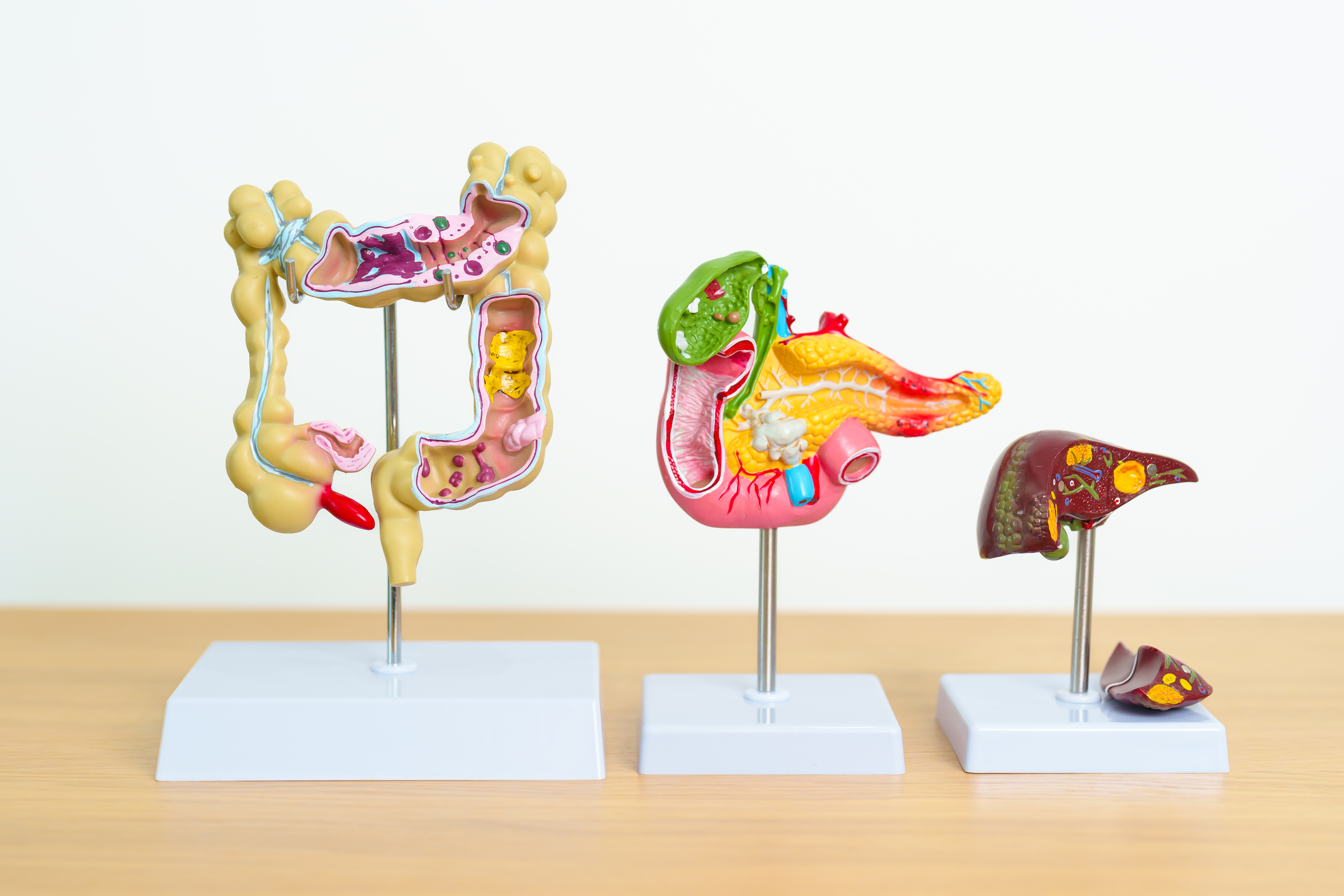10 Simple Strategies for a Quiet Digestive System: How To Prevent Flatulence
Flatulence, commonly known as passing gas, is a natural and often unavoidable bodily function. It occurs when gas builds up in the digestive system and is released through the rectum. From dietary choices to digestive health, various factors contribute to this phenomenon. While it's a normal part of digestion, excessive flatulence can be embarrassing and uncomfortable, impacting social interactions and personal confidence. Understanding the underlying causes of flatulence is crucial for managing it effectively. Chronic flatulence can indicate underlying digestive issues, such as food intolerances or gastrointestinal disorders. By addressing flatulence proactively, you not only enhance your quality of life but also safeguard your overall health. With a focus on evidence-based practices and holistic approaches, you'll be equipped with the knowledge and tools to master the art of a quiet digestive system.
Strategy 1: Embrace a Balanced Diet

A balanced diet is fundamental in managing flatulence. Consuming a variety of foods ensures that your digestive system functions optimally. Focus on incorporating whole grains, lean proteins, healthy fats, and a diverse range of fruits and vegetables into your meals. These foods provide essential nutrients that support gut health and reduce gas production. Avoiding processed foods and those high in sugar can also prevent digestive disturbances that lead to flatulence. Fiber plays a dual role in digestion. While it promotes healthy bowel movements, excessive fiber intake can increase gas production. Gradually introducing fiber-rich foods, such as beans, lentils, and broccoli, allows your digestive system to adjust, minimizing flatulence. Additionally, staying hydrated aids in the digestion of fiber, further reducing the risk of gas buildup. By maintaining a balanced diet, you support a healthy gut microbiome, which is crucial for minimizing flatulence.
Mindful eating is another aspect of a balanced diet that can help prevent flatulence. Eating slowly and chewing food thoroughly reduces the amount of air swallowed, which can contribute to gas buildup. Additionally, mindful eating encourages better digestion and absorption of nutrients. By paying attention to your body's hunger and fullness cues, you can avoid overeating, which often leads to discomfort and excessive gas. Embracing a balanced diet not only supports digestive health but also promotes overall well-being.
Strategy 2: Identify and Avoid Trigger Foods

Certain foods are notorious for causing flatulence due to their composition and how they are digested. Identifying and avoiding these trigger foods can significantly reduce gas production. Common culprits include beans, lentils, cruciferous vegetables (such as broccoli and cauliflower), and carbonated beverages. These foods contain complex carbohydrates and fibers that are fermented by gut bacteria, leading to increased gas production. Dairy products are another group of foods that can cause flatulence, especially for individuals with lactose intolerance. Lactose, the sugar found in milk, requires the enzyme lactase for digestion. In lactose-intolerant individuals, insufficient lactase production leads to fermentation of lactose in the gut, causing gas and bloating. Opting for lactose-free dairy products or plant-based alternatives can help alleviate these symptoms.
Keeping a food diary can be an effective way to identify personal trigger foods. By tracking your meals and any subsequent digestive discomfort, you can pinpoint specific foods that lead to flatulence. Once identified, you can modify your diet accordingly, either by reducing portion sizes or eliminating certain foods altogether. This personalized approach empowers you to make informed dietary choices, minimizing flatulence and enhancing digestive comfort.
Strategy 3: Optimize Gut Health with Probiotics

Probiotics are live microorganisms that confer health benefits when consumed in adequate amounts. They play a vital role in maintaining a healthy gut microbiome, which is essential for optimal digestion and reduced flatulence. Probiotics help balance the gut flora, promoting the growth of beneficial bacteria while inhibiting harmful ones. This balance is crucial for efficient digestion and minimizing gas production. Fermented foods, such as yogurt, kefir, sauerkraut, and kimchi, are rich sources of probiotics. Incorporating these foods into your diet can improve gut health and reduce flatulence. Additionally, probiotic supplements are available for those who may not consume enough fermented foods. When choosing a supplement, look for one with a diverse range of strains and a high colony-forming unit (CFU) count to ensure effectiveness.
Research suggests that specific probiotic strains, such as Bifidobacterium and Lactobacillus, are particularly effective in reducing flatulence. These strains aid in the digestion of complex carbohydrates and fibers, reducing the amount of gas produced during fermentation. By optimizing gut health with probiotics, you can enhance your digestive system's efficiency and minimize flatulence, contributing to a quieter digestive system.
Strategy 4: Stay Hydrated for Digestive Efficiency

Adequate hydration is crucial for maintaining a quiet digestive system. Water aids in the digestion and absorption of nutrients, preventing constipation and reducing the risk of gas buildup. When the body is dehydrated, the digestive system slows down, leading to inefficient digestion and increased flatulence. Ensuring you drink enough water throughout the day supports optimal digestive function and minimizes gas production. In addition to water, herbal teas can be beneficial for digestion. Peppermint tea, in particular, has antispasmodic properties that relax the digestive tract, reducing bloating and flatulence. Ginger tea is another excellent option, as it aids in digestion and reduces inflammation in the gut. Incorporating these teas into your daily routine can enhance hydration and support digestive health, contributing to a quieter digestive system.
It's important to note that while staying hydrated is essential, carbonated beverages should be avoided. The carbonation in these drinks introduces excess gas into the digestive system, exacerbating flatulence. Opt for still water and herbal teas instead to support hydration without contributing to gas production. By prioritizing hydration, you promote digestive efficiency and minimize flatulence, enhancing overall comfort and well-being.
Strategy 5: Practice Regular Physical Activity

Regular physical activity is a powerful tool for preventing flatulence and promoting digestive health. Exercise stimulates the muscles of the digestive tract, enhancing the movement of food and gas through the system. This increased motility reduces the likelihood of gas buildup and flatulence. Engaging in activities such as walking, jogging, or yoga can have a positive impact on your digestive system. Yoga, in particular, offers specific poses that aid in digestion and reduce flatulence. Poses like the wind-relieving pose (Pavanamuktasana) and seated forward bend (Paschimottanasana) gently compress the abdomen, promoting the release of trapped gas. Incorporating these poses into your exercise routine can enhance digestive comfort and minimize flatulence.
Consistency is key when it comes to physical activity. Aim for at least 30 minutes of moderate exercise most days of the week to support digestive health. In addition to reducing flatulence, regular exercise offers numerous other health benefits, including improved cardiovascular health, enhanced mood, and better weight management. By prioritizing physical activity, you contribute to a quieter digestive system and overall well-being.
Strategy 6: Manage Stress for a Calm Digestive System

Stress can have a profound impact on digestive health, often exacerbating flatulence. When the body is under stress, the digestive system can become dysregulated, leading to symptoms such as bloating and gas. Managing stress effectively is crucial for maintaining a quiet digestive system. Techniques such as mindfulness, meditation, and deep breathing can help calm the mind and support digestive health. Mindfulness involves paying attention to the present moment without judgment. Practicing mindfulness can reduce stress and promote relaxation, positively impacting digestion. Meditation is another powerful tool for stress management. Regular meditation practice can lower stress levels, enhance mental clarity, and support a healthy digestive system.
Deep breathing exercises can also be beneficial for reducing stress and promoting digestive health. By focusing on slow, deep breaths, you activate the parasympathetic nervous system, which encourages relaxation and supports digestion. Incorporating these stress management techniques into your daily routine can help maintain a calm digestive system, reducing flatulence and enhancing overall well-being.
Strategy 7: Chew Thoroughly and Eat Mindfully

The way you eat can significantly impact your digestive health and flatulence. Chewing food thoroughly is an essential step in the digestive process. It breaks down food into smaller particles, making it easier for the stomach and intestines to digest. Proper chewing also stimulates the production of digestive enzymes, enhancing nutrient absorption and reducing the risk of gas production. Mindful eating complements thorough chewing by encouraging you to pay attention to your eating habits. This involves savoring each bite, eating slowly, and being present during meals. By focusing on the sensory experience of eating, you can avoid overeating and reduce the amount of air swallowed, which can contribute to flatulence.
Creating a calm and distraction-free eating environment is also beneficial for digestion. Turn off electronic devices, sit down at a table, and take the time to enjoy your meals. By adopting these mindful eating practices, you support a quiet digestive system and minimize flatulence, enhancing your overall dining experience.
Strategy 8: Avoid Artificial Sweeteners and Sugar Alcohols

Artificial sweeteners and sugar alcohols are common additives in sugar-free and low-calorie products. While they offer a sweet taste without the calories, they can contribute to digestive discomfort and flatulence. These substances are often poorly absorbed in the digestive tract, leading to fermentation by gut bacteria and increased gas production. Sugar alcohols, such as sorbitol, mannitol, and xylitol, are particularly notorious for causing flatulence. They are commonly found in sugar-free gum, candies, and baked goods. For individuals with sensitive digestive systems, even small amounts of these substances can lead to bloating and gas. Reading product labels and choosing alternatives without these additives can help reduce flatulence.
Opting for natural sweeteners, such as honey or maple syrup, can be a better choice for those prone to flatulence. These sweeteners are more easily digested and less likely to cause gas. By being mindful of your sweetener choices, you can minimize flatulence and support a quieter digestive system, enhancing your overall comfort and well-being.
Strategy 9: Incorporate Digestive Enzymes

Digestive enzymes are proteins that facilitate the breakdown of food into nutrients that the body can absorb. Supplementing with digestive enzymes can be beneficial for individuals who experience flatulence due to enzyme deficiencies. These supplements can aid in the digestion of complex carbohydrates, proteins, and fats, reducing the risk of gas production. Common digestive enzymes include amylase, protease, lipase, and lactase. Amylase helps break down carbohydrates, protease aids in protein digestion, lipase assists with fat digestion, and lactase supports lactose breakdown. For individuals with lactose intolerance, lactase supplements can be particularly helpful in preventing flatulence and bloating.
Incorporating digestive enzyme supplements into your routine can enhance digestive efficiency and minimize flatulence. It's important to choose high-quality supplements and follow the recommended dosage. Consulting with a healthcare professional can help determine the most suitable enzymes for your needs. By supporting your digestive system with enzymes, you can achieve a quieter digestive system and improved overall health.
Strategy 10: Consult a Healthcare Professional

If flatulence persists despite implementing these strategies, it may be time to consult a healthcare professional. Chronic flatulence can indicate underlying digestive issues, such as irritable bowel syndrome (IBS), small intestinal bacterial overgrowth (SIBO), or food intolerances. A healthcare professional can conduct a thorough evaluation and recommend appropriate tests to identify the root cause of your symptoms. Once the underlying cause is identified, a healthcare professional can develop a personalized treatment plan to address your specific needs. This may include dietary modifications, medications, or further diagnostic testing. By seeking professional guidance, you can effectively manage flatulence and improve your digestive health.
In addition to addressing flatulence, consulting a healthcare professional can provide valuable insights into your overall health. Regular check-ups and open communication with your healthcare provider are essential for maintaining optimal well-being. By taking a proactive approach to your health, you can achieve a quiet digestive system and enhance your quality of life.
Achieving Digestive Harmony

Mastering the art of a quiet digestive system requires a comprehensive approach that encompasses dietary choices, lifestyle modifications, and proactive health management. By implementing the ten strategies outlined in this article, you can effectively prevent flatulence and enhance your digestive health. From embracing a balanced diet to managing stress, each strategy plays a vital role in achieving digestive harmony. It's important to remember that everyone's digestive system is unique, and what works for one person may not work for another. Experimenting with different strategies and paying attention to your body's responses can help you identify the most effective approach for your needs. By taking control of your digestive health, you can enjoy a quieter digestive system and improved overall well-being. Incorporating these strategies into your daily routine not only minimizes flatulence but also supports a healthy lifestyle. By prioritizing your digestive health, you contribute to your overall happiness and quality of life. Embrace the journey to a quieter digestive system with confidence, knowing that you have the knowledge and tools to succeed.
